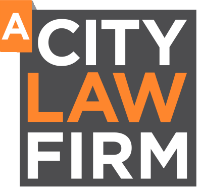
Do not make it a priority
As with any potential threats or disruptions to a business, your main focus should continue to be that of the business. It is important not to allow the strain and anxiety which comes hand in hand with legal proceedings to encroach on the day-to-day running of the business. This could have a knock-on effect on the business; if you subconsciously allow yourself to spend too much time and attention on the proceedings and not enough on business matters, this could affect any business decisions you need to make or you could prioritise your workload ineffectively. Whilst litigation is of course a serious matter, business owners should ensure that time and attention is directed to such matters only when it is fundamentally necessary. If you have a secretary or personal assistant, take advantage of their ability to filter your telephone calls or emails in case such correspondence can be dealt with by someone else. This leaves you free to handle business matters.
Instruct solicitors
Check whether your company insurance policy covers legal expenses. Whether you revisit your policy documents or give them a quick call, it is always worthwhile to check not only from a financial perspective (by assisting with payment of your costs) but from a commercial perspective (by being able to recommend a panel of solicitors for you). It is common practice that legal expenses are covered up to a certain capped amount in insurance policies. It is therefore sensible to see whether this option is available to your business.
If legal expenses are covered, your policy should also have a panel of solicitors which they would recommend you use. Even if this is not the case, it would be a good idea, if you have the financial means to do so, to instruct a firm of solicitors to deal with this on your behalf. Instructing solicitors will take the weight off your shoulders. They will be able to respond to correspondence on your behalf, advise you on your available options and discuss tactics with you. It is their responsibility to take the lead, to advise you accordingly and to correspond with you only to update you and to take your instructions. Instructing solicitors is therefore an excellent way of ensuring that you can focus on doing your job and not letting external matters take priority.
Take stock and consider matters from a commercial perspective
In litigation disputes, some parties may become so engrossed in the proceedings that they begin to lose sight of the ever increasing costs. It would be a good idea, every so often or at certain junctures of the proceedings, to take stock and consider whether it is still commercially viable to continue with the litigation dispute. Claimant businesses will need to consider whether it is worth continuing to pursue their claim. Defendant businesses will need to consider whether it is still worth defending the claim.
In carrying out this balancing exercise, you will need to consider three things:
- Your costs to date.
- What the costs are likely to be going forward.
- And the costs you are likely to recover at conclusion, if any.
With this information, you would be in a better position to consider whether the costs you may recover (if any) will outweigh the costs of litigation itself. If you have instructed solicitors, you should have a frank conversation with them about this to be advised accordingly. They can discuss with you whether it is worth pushing forward with the matter, or whether putting forward a settlement offer will actually garner a better result for you. Request that they send you costs estimates on a regular basis to stay on top of your finances and that you are completely informed at all stages.
It is important to remember that, in litigation, the usual position is that the losing party will be ordered by the court to pay the other party’s recoverable costs. This can include fees, expenses, disbursements and remuneration. This is another reason why parties should carefully consider how to progress with the claim. If you continue to pursue or defend the claim and are unsuccessful, a court may order that you pay an adverse costs order (the amount of which is beyond your control). However, if you choose to settle, these costs may be negotiated between the parties.
Minimise risks at the outset
Since prevention is better than cure, businesses should ensure that they do all that they can to minimise the risk of litigation in the first place. If you find yourself particularly anxious about minimising potential threats of litigation to your business, it would be advisable to instruct solicitors who will be able to conduct an audit on your business and advise accordingly. An audit will be able to tell you if there may be any potential risks to your business being involved in any litigation disputes. However, the below are some points you may want to consider yourself:
- Make sure that all arrangements and relationships (whether it is with clients, employees or suppliers) are put in writing and are carefully and thoroughly recorded.
- Obtain legal advice on your contracts to ensure that you completely understand all clauses in the contract, any restrictions that may apply to you, any time limits you should be aware of and the level of indemnity afforded to you.
- Stay proactive, ensure that you act immediately as soon as a dispute or complaint arises in order to nip it in the bud and prevent it from potentially escalating further.
- Keep up to date with the current legal issues and challenges in your industry so that you can adequately prepare for any potential problems.
- Always provide an exceptional service, ensure that your clients or customers are happy and that your business operations or management structures are well-oiled, this would minimise the risk of any potential professional negligence claims.
In the meantime, if you can’t wait, you can contact us directly for impartial advice by visiting our website http://www.acitylawfirm.com/ or emailing [email protected]
Karen Holden is the Managing Director & Founder of A City Law Firm who practise both commercial law and litigation, having been admitted to the roll in 2005. If you require further advice or assistance, please do not hesitate to contact [email protected]
A City Law Firm Limited is a leading entrepreneurial law firm in the city of London, with a dynamic and diverse team of lawyers. It was awarded most innovative law firm, London 2016 and Business Law firm 2017. They specialise in start-up business law, the tech industry, IP and investment

 In the meantime, if you can’t wait, you can contact us directly for impartial advice by visiting our website
In the meantime, if you can’t wait, you can contact us directly for impartial advice by visiting our website 






















